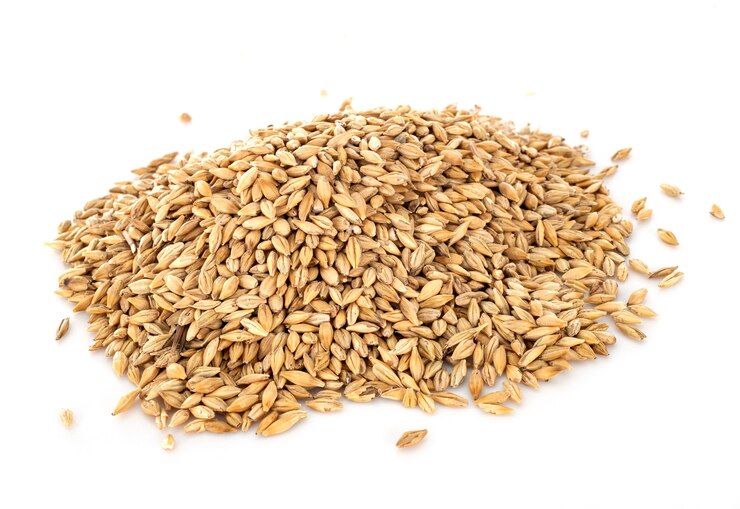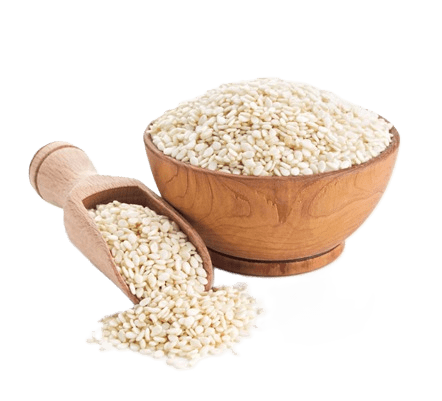Sesame seeds
Sesame seeds
Introduction to Sesame Seeds
Sesame seeds, also known as benne seeds or “simsim” in some parts of the world, are tiny oil-rich seeds derived from the Sesamum indicum plant. They have been cultivated for thousands of years and are highly valued for their taste, nutritional benefits, and versatile uses in various cuisines.
Nutritional Benefits of Sesame Seeds
Sesame seeds pack a punch when it comes to nutrition. They are an excellent source of healthy fats, including omega-3 and omega-6 fatty acids, which promote heart health. Additionally, they are rich in minerals like calcium, iron, magnesium, and zinc. Sesame seeds are also abundant in dietary fiber and contain beneficial plant compounds such as antioxidants and phytosterols.
Culinary Uses of Sesame Seeds
In the culinary world, sesame seeds play a significant role in enhancing the flavor and texture of numerous dishes. Toasted sesame seeds are commonly sprinkled over salads, stir-fries, and sushi rolls to add a delightful crunch. They are also ground into sesame paste, known as tahini, and used as a key ingredient in hummus, sauces, and dressings. Furthermore, sesame oil extracted from these seeds is prized for its distinctive nutty flavor and is widely employed in Asian cooking.
Health and Medicinal Uses of Sesame Seeds
Sesame seeds possess medicinal properties that can benefit overall health. Studies suggest that consuming sesame seeds may lower cholesterol levels, reduce inflammation, and improve blood pressure control. These seeds also contain lignans, which have shown potential in promoting hormonal balance and reducing the risk of certain hormone-related cancers. However, it’s important to note that sesame seeds should be consumed as part of a balanced diet and not relied upon as a sole treatment for any health condition.
Beauty and Skincare with Sesame Seeds
Beyond their culinary applications, sesame seeds offer benefits for beauty and skincare. The oil derived from sesame seeds acts as a natural moisturizer, helping to nourish and hydrate the skin. It’s often used in massage oils and lotions due to its antioxidant properties that help fight free radicals and delay skin aging. Additionally, sesame oil can be beneficial for hair health, adding shine and promoting a healthy scalp.
Tips for Buying and Storing Sesame Seeds
When purchasing sesame seeds, it is advisable to choose those that are unbroken, uniform in color, and have a pleasant nutty aroma. To maintain their freshness, store sesame seeds in an airtight container in a cool, dry place. They can stay fresh for several months if stored properly.
Popular Sesame Seed Recipes
Sesame seeds are incredibly versatile and can be incorporated into a wide range of dishes. Some popular recipes include sesame-crusted chicken or fish, sesame noodles, sesame-coated tofu, and sesame seed bread. Additionally, they are often used in baking, especially in desserts like sesame cookies and sweet treats.
Interesting Facts About Sesame Seeds
– Sesame seeds are one of the oldest oilseed crops known to humanity, dating back over 3,500 years.
– The phrase “Open Sesame” originates from the story of Ali Baba and the Forty Thieves, where the magical phrase was used to open a hidden treasure cave.
– Sesame seeds come in several colors, including white, black, yellow, and red. Each variety has a slightly different flavor profile.
– Sesame seeds are widely used in traditional medicine systems, such as Ayurveda, due to their therapeutic properties.
– Japan is the largest consumer of sesame seeds globally, utilizing them in various culinary preparations like sushi and sesame salad dressings.
By exploring the many uses, nutritional benefits, and interesting facts about sesame seeds, you can unleash the full potential of these tiny powerhouses in your daily life, from adding flavor to your dishes to reaping their health and beauty advantages.
SHIPPING DOCUMENTS
Bill of Lading
Certificate of Origin
SGS Inspection Certificate
Phytosanitary Certificate
Fumigation Certificate
Commercial Invoice
Packing List


TRADE PROCESS
Cost Insurance and Freight (CIF):The seller handles everything from loading the vessel, paying for insurance, and shipping the product to the country the buyer wants it delivered.
Freight On Board (FOB):The seller is responsible for handling the transportation of the goods to the port of shipment and loading cost. Once the goods are loaded on the ship, all liabilities transferred to the buyer. Liabilities like unloading, insurance, marine freight transport and transporting products to its destination.
We Are Ready To Handle Your Request
Enter your details and we will get in touch to discuss your project






